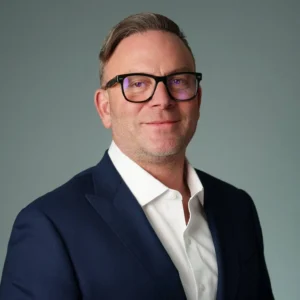Marketing Darwinism talked to Vinay Patel, Co-Founder of OIC Advisors
- Tell us about OIC Advisors and its core thesis.
We started this company after being in professional services for most of our careers. We’ve been around the block! Over the years, we’ve noticed that we see the same mistakes over and over again in core areas like strategy, communications, organizational alignment, and operational execution. Our mission is to help proactive leaders drive growth through successful transformation. What differentiates us from the many consulting companies out there is that we take a very practical approach to solving big challenges holistically – many times, a leader brings us in to fix operational problems, but may not know that there are people problems as well.
We get results quickly – being action oriented, we dive right in, start to talk to team members, analyze existing documentation, and come up with a prioritized roadmap, usually in just a few weeks. And we freely share IP – if we have a template or a process that will improve our clients’ situation, we freely share it.
- How do organizations take it when you tell them either what’s broken or what needs to be improved?
It varies a lot – no one enjoys being told their baby is ugly! But when a leader brings us in because their organization is not moving fast enough, not keeping pace with the rate of change of the market, or the results are not matching their expectations, it is usually a sign that they are not running at what we call “Operational Velocity.” So, they hire us with the expectation that we will help them improve this situation, and they usually have an area of focus in mind (such as a particular organization, or a business process). When we do our analysis, we always try to think holistically and look at the bigger picture – for example, are team members aware of the strategy of the company, do they know what metrics are critical to success, do they have role definitions for their roles? A lot of times, there is misalignment between leadership expectations and team member reality. So, when we surface some of these issues, there is usually a light-bulb moment, and we have great conversations about what can be done to achieve the desired results at speed.
- What are the themes that emerge most often when considering once-great companies that slow-down or face headwinds?
We see many common pain points again and again. Some common themes we see are:
- Misalignment on vision and strategy – CEOs or Founders have a vision, but it is not captured or communicated to the rest of the team, and there is no defined strategy to execute that vision.
- Tech and process debt – we see this a lot in the largest global enterprises. People know what the problems are, but they either don’t have the time, or the remit, to finally address them. These are often challenging because the solution needs to be cross-functional, with multiple teams in agreement on the fixes.
- People in the wrong roles – leaders being in “aspirational” roles, or role definitions that are not clear. There are no job descriptions, and people are hired to solve specific problems, rather than strategically move the company forward with key skillsets.
- Portfolio Management – lack of a true product management function, not keeping pace with market changes, or lack of a differentiated, competitive portfolio of offers.
- Toolset strategy – too many tools, lack of governance around software assets, poorly defined and implemented processes.
- How often are the “fixes” technological? How often are they “people” fixes?
There is always some component of non-technical challenges that we address. This can be with people in wrong roles as mentioned previously, or business processes being outdated and not keeping up with the growth of the company. When we provide a solutions roadmap, we break it down into areas like Organizational Recommendations, Technical Recommendations, and Process Recommendations, and highlight the interdependencies across each area – you can’t make foundational changes in a vacuum. We also often see that the actual organizational design is part of the problem, the org was either NOT consciously designed, or it hasn’t been adjusted to keep up with where the company wants to go.
- We used to use the term “Digital Transformation” a lot. Now we invoke AI-led efficiency. How does a large organization transform itself while still operating and providing for customers?
This is one of the biggest challenges that organizations and leaders face today – with the pace of change being so fast, leaders do not have the luxury of stopping the “run the business” activities at the expense of “transform the business.” So, our recommendations include short-term fixes, quick wins, and a longer-term roadmap that builds on previous successes. For AI specifically, there needs to be an AI governance process that covers what the AI strategy is, goals for the use of AI, what the governance process is, what data sources will be used and how, skills gaps, etc.
Also, it is imperative that all transformations include a very strong communications plan, both internally for employees and externally for customers, so that everyone is aware of the shifts that the company is making.
You cannot expect a transformation to be successful without leaders who are focused on the big rocks that need to be moved – they need time, resources, and executive backing to be able to take some cycles away from their day jobs. But they have to show results quickly and then keep building on those results. We have seen this work again and again, so it is possible with a bought-in leadership team and a culture that embraces change.
- What are the types of organizations that need OIC Advisors the most?
Most of our clients come from organizations that are having difficulty scaling and growing. We find that we are most successful in organizations that have leadership who are acutely aware that they need to evolve and change, and are ready to make difficult decisions, and to bring their team along on the journey. The size of the organization is not the most critical success criteria – we have made significant progress and received endorsements from large Fortune 50 clients as well as start-ups with less than 100 people. We usually work with technology companies because they are rapidly evolving and need to pivot quickly or else they become obsolete.
- As we go into 2026, what do leaders need to think about most?
They need crystal clarity on what they are trying to achieve in the coming year and whether they are setting their team up for success. Because that implies that success is defined and can be measured, and daily noise can be filtered if it does not affect your definition of success. Also, do I as a leader have the right tools and resources to position my organization for success? This includes technical tools, financial resources, people resources with the right skillsets, and operational tools that allow the team to efficiently achieve their goals. We see innovative and disruptive solutions like AI do the exact OPPOSITE of what they should: they disrupt the organization’s business by flooding it with noise, pilot projects, evaluations, and a fear of being left behind. Instead, these programs should be clearly managed with business outcomes in mind and administered as critical transformation projects, including factors such as organizational design and governance.











